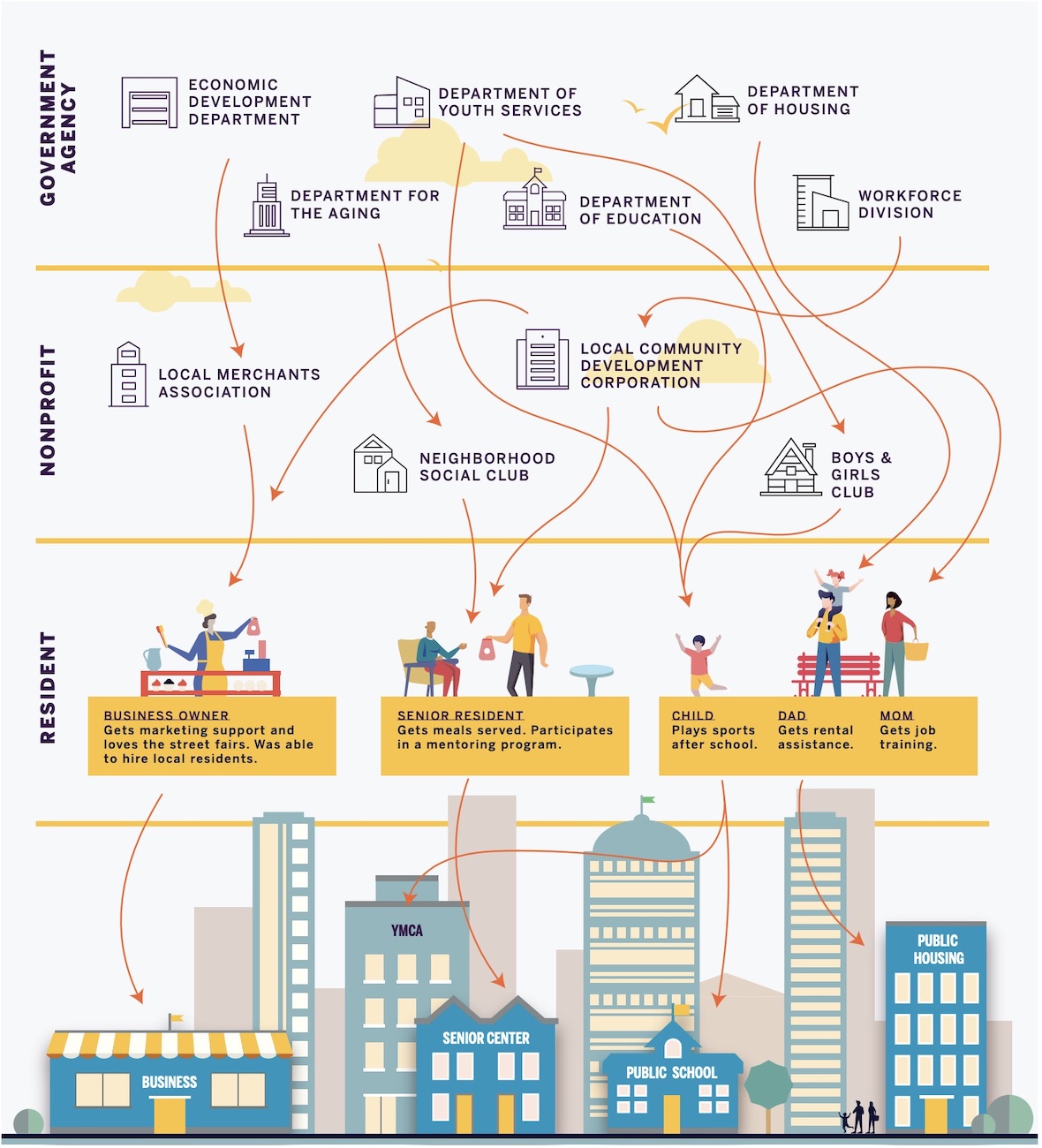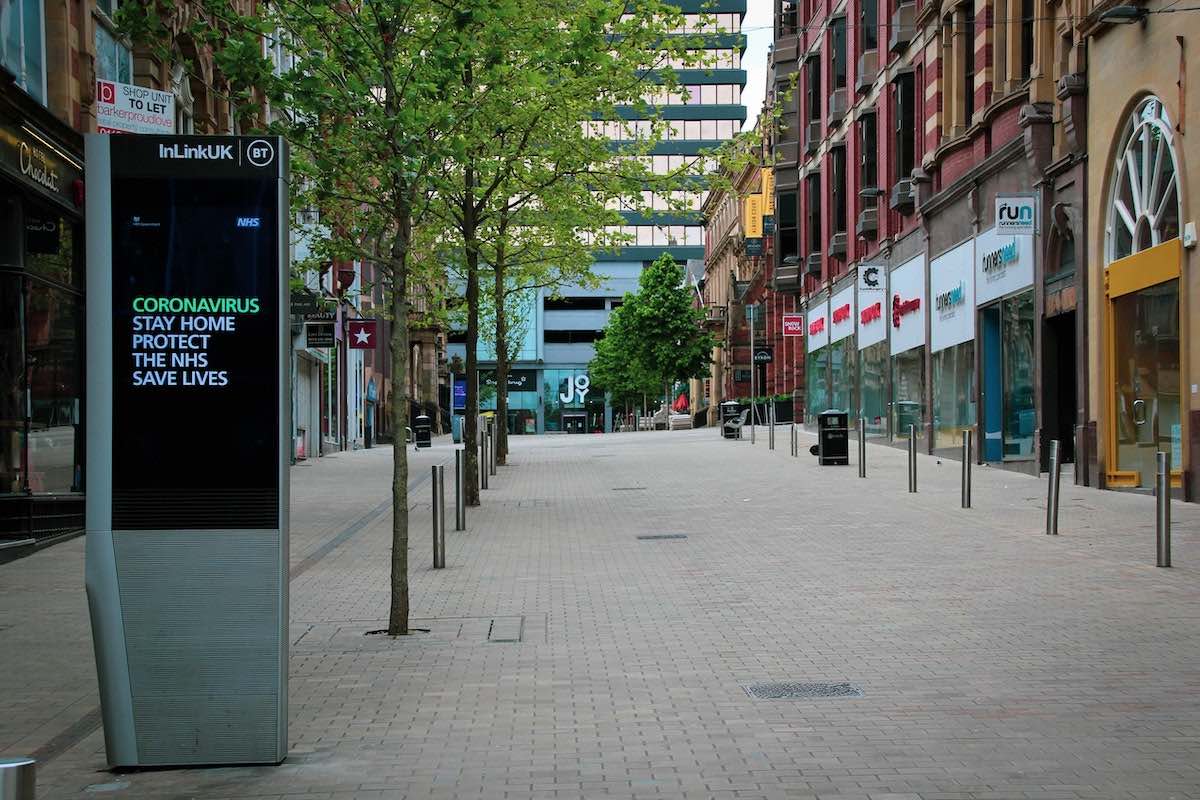In early 2018, parched by a severe drought, Cape Town rallied its residents and businesses to slash water use and stop its taps running dry. Now, lessons from the water crisis are helping the South African city respond to the coronavirus pandemic.
Megaphones are being used in communities with limited online access to make residents aware of the need for social distancing and good hygiene, just as they were deployed during the drought to encourage people to conserve water.
Videos on the city’s social media channels honour frontline workers in the COVID-19 crisis and urge efforts to deal with it together – messages similar to those applauding water-saving efforts two to three years ago.
And networks set up to engage businesses in a joint push to use water efficiently have been resuscitated to help them safely continue operations while containing COVID-19.
Gareth Morgan, Cape Town’s director of resilience, said the city of about 4.6 million people was benefiting from what he called “crisis muscle memory”.
Many of the same planners who worked on the drought response are now dealing with COVID-19 and using similar tools, such as building an index to show who is most vulnerable and developing a dashboard of metrics to track the situation.
“It is not uncommon for our city team members to regularly say in our planning meetings that we learned something during the drought and we should be cognisant of it now,” Morgan told the Thomson Reuters Foundation in emailed comments.
Harnessing experiences from previous disasters to limit the fallout from the novel coronavirus is not unique to Cape Town. And urban officials aren’t keeping the real-time knowledge they are gaining from today’s health crisis to themselves.
Several international networks set up to help cities cope better with modern-day challenges – from climate change to urban poverty – have sprung into action in recent weeks, to help their members respond quickly and effectively to COVID-19.
Urban experts admit that the risk of a global pandemic was not top of the list of imminent threats for the majority of cities they had worked with, before this year.
“Often our plans and strategies respond to the shock that is in our most recent memory, and that’s what motivates us,” said Lauren Sorkin, acting executive director of the Global Resilient Cities Network (GRCN).
For many cities that has been worsening extreme weather, such as storms and heatwaves, or the arrival of large numbers of refugees fleeing conflict.
Nonetheless, some cities, such as Surat in India, which suffered an outbreak of plague in 1994, have strengthened health systems as part of overall city resilience plans, Sorkin noted.
And in England, Greater Manchester, in developing its own strategy, has specifically considered what measures would be needed to respond better to a flu pandemic, including putting public information on its disaster preparedness website.
Multiple crises
Advocates of “urban resilience” say the holistic approach – which has gained traction around the world in recent years – can improve how cities handle all manner of shocks and stresses.
In trying to build resilience, cities analyse complex systems and how their different parts might be affected by a range of threats.
The aim is to keep residents, property, infrastructure and nature safe – and emerge stronger from a crisis.
“The capacity that is needed in government and administration is one in which people understand how to manage multiple crises interacting with one another simultaneously – and that’s the century we’re in,” said Jeb Brugmann, a founding partner at Resilient Cities Catalyst, a non-profit urban consultancy.

In practice, that could mean planting trees in Parisian schoolyards to provide green, less-polluted spaces for children that are also open for local people to cool off in heatwaves.
It could also mean incorporating off-grid solar power systems as medical facilities damaged by hurricanes are rebuilt in places like Puerto Rico, to lower planet-warming emissions and ensure the centres can function during disaster blackouts.
GRCN’s Sorkin said city resilience strategies would likely have a larger emphasis on bolstering health systems and public health in the wake of the coronavirus pandemic.
From New York to Madrid, London and Cape Town, cities have struggled to cope with a surge in COVID-19 patients, forcing them to set up makeshift coronavirus hospitals in parks or convention centres.
Fair, green recovery
For now, cities are sharing practical advice via online forums and webinars on everything from communicating with residents to adapting public transport and protecting at-risk groups like the elderly, Sorkin said.
Her network this month launched a platform to help cities plan a resilient recovery from the pandemic.
Another large coalition, C40 Cities, which normally supports cities working to tackle climate change has also rallied a task force of mayors to drive forward a sustainable, fair economic recovery from the COVID-19 crisis.
“The harm caused by COVID-19 has not been equitable,” the leaders of more than 35 cities, led by hard-hit Milan, noted in a statement of principles.
They called for essential workers to be “celebrated and compensated accordingly” and new policies to support people living in informal settlements, as well as efforts to tackle the climate crisis and create new jobs in low-carbon industries.
Already some cities, from Europe to Latin America, are pushing through COVID-19 recovery measures aimed at keeping carbon emissions and air pollution in check as reopenings begin, such as by closing streets to traffic and adding cycle lanes.
Former Toronto Mayor David Miller, C40’s director of international diplomacy, urged cities and national governments to back projects that address a range of urban problems, such as building eco-friendly affordable housing or helping low-income residents install rooftop solar-power systems.
“There are many things that cities can do to address the environmental crisis and the economic crisis coming out of this health crisis,” Miller told the Thomson Reuters Foundation.
Milan, for example, will need to redesign its public space to reduce traffic and enable social distancing, and consider ways to ensure everyone has access to the internet, due to its essential role in home-working and communication during the lockdown, said its chief resilience officer Piero Pelizzaro.
The coronavirus crisis has shown that “if we want to change, we can change” in a short time, he told an online event last month.
Milan did not include pandemics in its first resilience assessment, Pelizzaro noted, adding that it and other cities may need to incorporate worst-case scenarios in urban planning to be better prepared for outlier risks in the future.
“What we are living (now) I think was predictable but not thinkable,” he said.
Written by
Megan Rowling, Journalist, Thomson Reuters Foundation
Republished from the World Economic Forum










